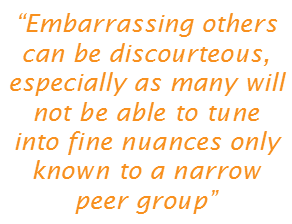Alastair Grant gives some advice on ‘what to do’ and ‘what not to do’ during a wedding speech.
For many years, I have been advising and coaching others in affective business presentations and pitches. I tend to avoid helping those who are making a speech at a wedding. Although, there was one occasion where I helped a manager who was required to make a eulogy about a colleague, killed in an aircraft accident. This was a hard one as he hardly knew the colleague. This summer our daughter was married and so I set about preparing and delivering the Father of the Bride speech. Friends would say this should be right up my street as one who coaches others. Not so! A wedding speech is in content terms quite different. No PowerPoint, perhaps no key messages. A need to say nice things, but also to amuse. An audience that spans young to very old.

What is the same is to harness one’s best delivery skills. The need to pause, gain eye contact, to have the right voice inflection.
So, what have I learnt from my experience? First of all, I was clear that, not being a natural “off the cuff man”, I would write out the words as a script. Firstly, there are some well-established headings:
- Thanks to various parties
- A bio of my daughter
- Praise for her particular qualities
- Advice to the groom
- Propose a toast to the newly married couple.
What not to do:
- Talk for too long. I planned on 5 minutes but in the end, it crept to 10 minutes. But that’s long enough as there will be other speeches too. At one wedding we attended, three best men seemed to compete with each other to be more outrageous. It went on for far too long and most of us, not from their peer group, didn’t know what it was about anyway
- Expose too much intimate detail. A fine balance here, but embarrassing others can be discourteous, especially as many will not be able to tune into fine nuances only known to a narrow peer group
- Spend too much time thanking people. Although a worthy thing to do, the audience will quickly become bored. It’s a good idea to check with the groom, best man and maybe the bride if she is going to say something. They may wish to thank people as well
- Avoid being boastful of your offspring’s academic, sporting and other achievements.
 What to do:
What to do:
- The key challenge is to build up a profile of your daughter over many years. A simple timeline of key events is easy enough but building in humour may take longer. So, start your preparations early. In our case, it was a dialogue over a few weeks between me and my wife as we recalled events and then, bit by bit, what amused us floated to the surface. Later I found practicing aloud enabled me to build in little ad libs as they occurred to me. Straight away, I put them into the script.
- Praise for daughter. This can sound full of gush. So it’s good to have counterpoints. Sir John Major’s moving eulogy of Paddy Ashdown was full of this: ‘Paddy was always impatient. DIY bookcases were put up crooked, but he became an accomplished writer with 8 top-level books that could grace anybody’s bookcase, however crooked’. I mentioned that my daughter had not achieved high academic attainments but more than made up for it by other qualities.
- Advice to the Groom. Well this is not mandatory and has to be done somewhat tongue in cheek. Yet underlining it could be some sound advice.
- Propose the health. Surely easy to do. But important to do it with an element of showmanship. However, rehearsing this bit is sensible. Avoid making the same mistake I did, by getting the newlyweds double-barreled name the wrong way around. Maybe I was more nervous than I realised!
- Rehearse. I wrote a script but was determined not to use one on the day. So, I reduced it to notes. And then I practised and practised until I could recite all by heart, just like an actor. But I also practised with my notes as I felt that on the day, with a little emotion, I might fluff my lines. And indeed, although most came from my head, a few glances at notes kept me on track.

(Unsplash, 2019)
One thing that did not go well was the PA system. I was given a hand microphone and quickly found my voice became distorted if too close or inaudible if too far away. Getting it at exactly the right distance was very distracting. It would have been better to have the microphone on a stand and not waving around in my hand.
My start was to say that this was my first ever Father of the Bride speech…and my last. Although an attempt to gain a smile, it was also my thought that time spent in preparation was important. With only one daughter I hope I won’t have to do it again!
By Alastair Grant
Download a pdf of the article here: Wedding Speeches

